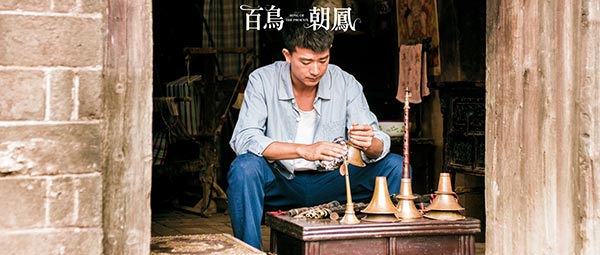 |
|
A scene from the film Song of the Phoenix featuring veteran actor Tao Zeru in the main role. [Photo provided to China Daily] |
His daughter, Wu Yanyan, then tried to sell her father's swan song to China's distributors-with no success-until she met Fang.
Fang was trained as an earth and ocean scientist and earned an MBA in the United States.
He has a business in Silicon Valley, but started to produce films, mostly art-house fare, early this century.
His biggest project was the 2014 directorial debut by best-selling author Han Han.
The Continent grossed a whopping 632 million yuan.
However, Fang does not agree that he makes "art films".
 |
|
A scene from the film Song of the Phoenix. [Photo provided to China Daily] |
He tells me that the films he has produced, including Song of the Phoenix, belong in the genre of "drama".
He defines "drama" as movies that tell stories and "art films" as experimental works with thin plots.
Yet, Chinese translations are so confusing that little distinction can be made by a layperson with no knowledge of nuance.
Whatever label one may place on it, Song of the Phoenix has now gained three layers of meaning, making it ripe for future film treatment.
The story is about a patriarchal musician who plays the traditional Chinese instrument suona, a high-pitched double-reed with a sound similar to the oboe.
The master is meticulous about passing on the technique-and the social stature associated with it-to the next generation.
But he is chagrined to find that he could be the last of the line because modern, Western instruments, represented by a brass band in the film, have eroded suona's popularity.
In a similar vein, Wu Tianming was from a dying breed, insisting on making films that are personal rather than popular.